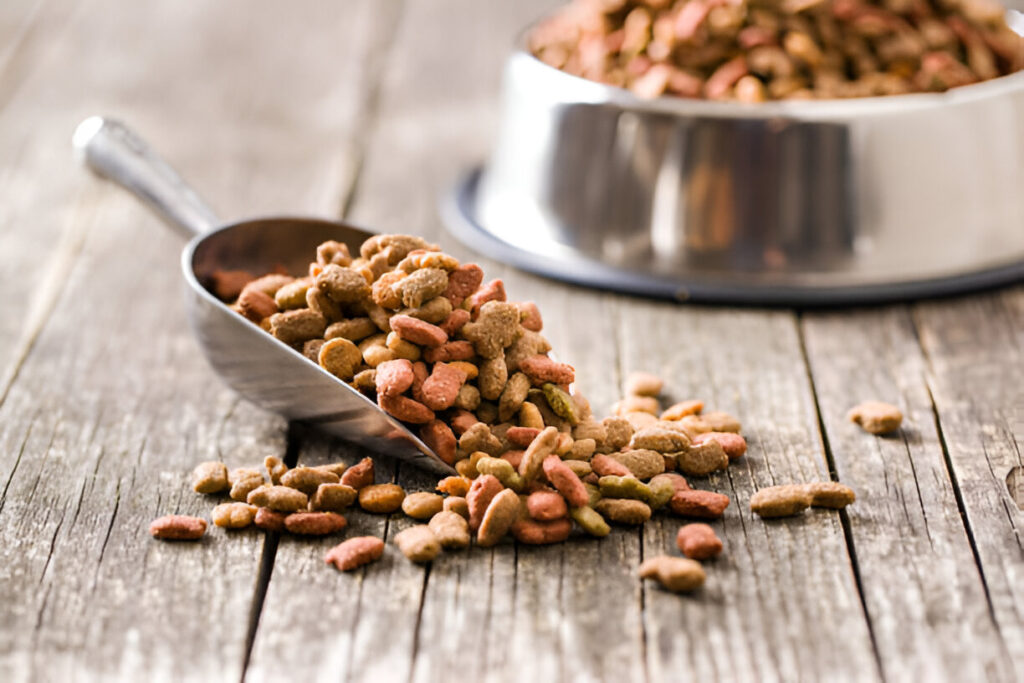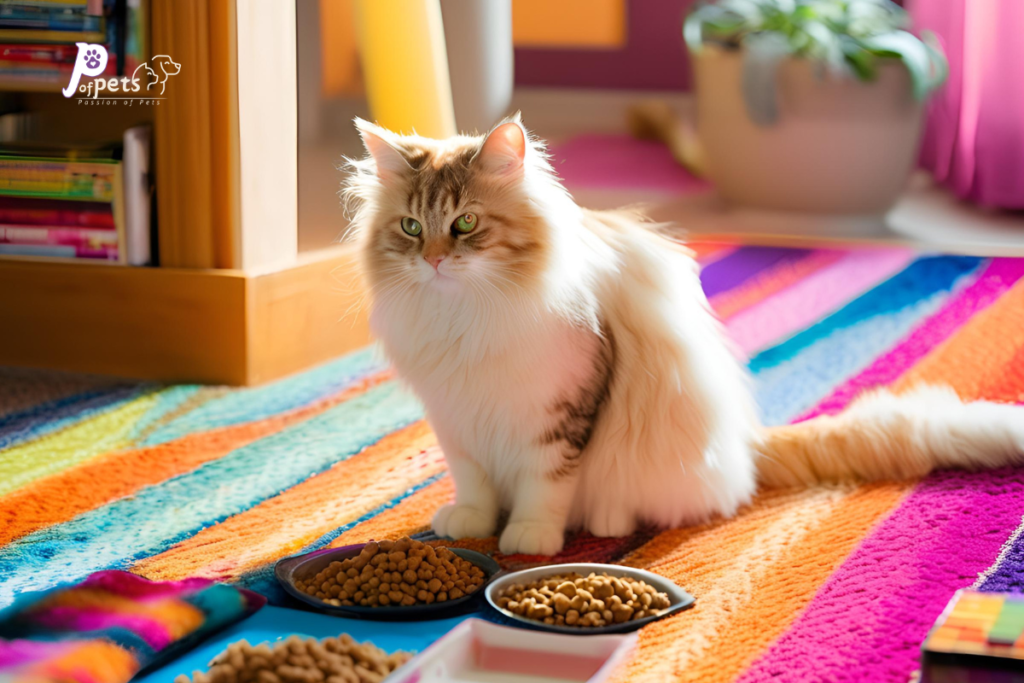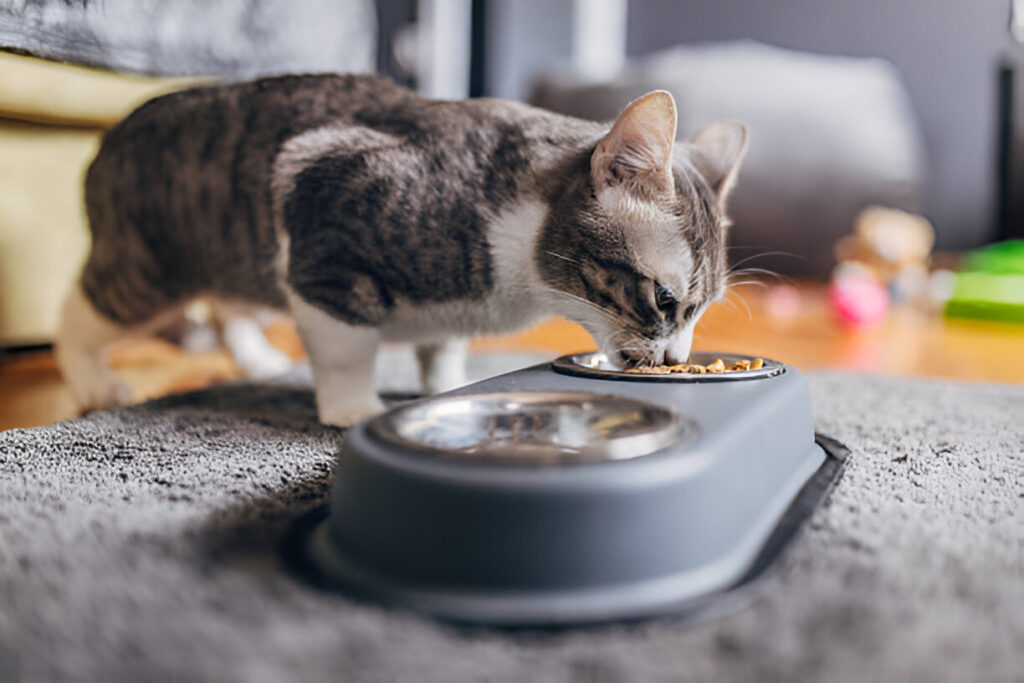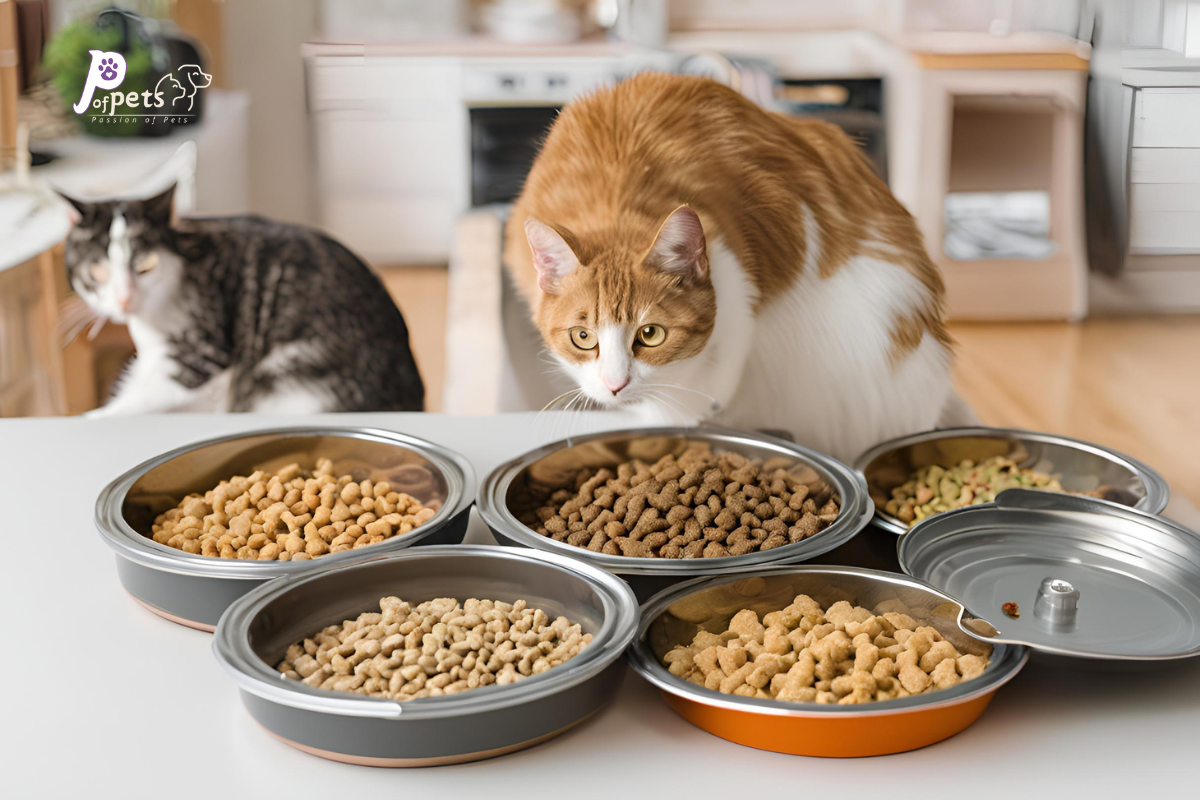does a change in cat food change cat behavior?
Cats are all so different from one another in personality, quirkiness, and food preference. As a cat owner, you may have wondered if and how changing your cat’s food might affect their behavior. The answer is simply that yes, a change in cat food can actually affect the behavior of your feline friend, but to what extent and in what manner depends on several factors.
In this blog post, we’ll explore how diet impacts cat behavior, what to expect when switching foods, and how to make the transition as smooth as possible.
The Connection Between Diet and Cat Behavior
The cat is an obligate carnivore, meaning that its body is adapted to survive on a richly protean diet of animal origin. Therefore, their nutritional requirements are rather specific. Any nutritional deficit or alteration can directly affect their health and behavior. Here’s how diet and behavior are interrelated:
1. Energy Levels and Activity
- Type and quality of food consumed by the cat determines their energy levels. High quality and protein-rich diets provide the nutritional requirements to keep up the energy and support active lifestyles.
- Low quality or nutritionally poor food or diet results in lethargy, low playfulness, and sluggishness overall.
2. Mood and Temperament
- Just like humans, cats have mood swings depending on their diet. For example, a deficiency in taurine-an amino acid that cats require-can lead to irritability, anxiety, or depression.
- On the other hand, a diet with appropriate nutrients can help to promote a calm and content demeanor.
3. Digestive Health and Behavior

- Sudden changes in diet can upset your cat’s digestive system, leading to symptoms like vomiting, diarrhea, or constipation. These physical discomforts can make your cat irritable or withdrawn.
- A diet that supports gut health, such as one with probiotics or easily digestible proteins, can improve your cat’s overall well-being and behavior.
4. Weight Management and Behavior
Behavioral changes are included in overweight and underweight cats. An overweight cat may show lesser activity with more irritation or frustration, but an underweight cat might be anxious and hyperactive. Changes in behavior due to the improvement of weight through new diet may provide positive behavioral change, including playfulness and a balanced temperament.
5. Food Allergies and Sensitivities
- Some cats develop food allergies or sensitivities, which may manifest as changes in behavior. A cat with an allergy to an ingredient might be itchy, restless, or even aggressive.
- Identification and elimination of the allergen in their diet may cure these behavioral issues.
Common Behavioral Changes After a Diet Change

When you switch your cat’s food, you may see a few changes in their behavior. These can be positive or negative depending on how well the new diet suits your cat’s needs. Here are some common behavioral changes to watch for:
1. Increased or Decreased Appetite
- If your cat loves this new food, they will be more eager at dinner time, and vice versa, not so much if they don’t like it at all; they will eat less or may even refuse to eat it.
- The possible reason for increased appetite may be because the new food is not that filling or satisfying, or lacking certain nutrients.
2. Activity Levels
- A diet providing more energy can make them more playful and active. Conversely, a diet that is not satisfactory for your cat’s nutritional requirements may make it lethargic.
3. Changes in Litter Box Behavior
- Dietary changes may cause changes in your cat’s digestion, hence changing litter box habits. For instance, a high-fiber diet may cause an increase in frequency of bowel movements, while a sudden switch to richer food may lead to diarrhea.
4. Mood Swings
- Diet changes can make your cat more affectionate, irritated, or anxious. These changes in mood usually are temporary and will pass once your cat becomes accustomed to the new food.
5. Grooming Behaviour
- Cats that have food allergies or sensitivity can overgroom themselves. This can result in hair loss or skin irritability. A diet change that eliminates the allergen often reduces this behaviour.
How to Transition Your Cat to New Food
It is very important to change the food gradually in order to reduce negative behavioral changes and ensure that the transition is smooth. Here’s a step-by-step guide:
1. Consult Your Veterinarian
- Consult your veterinarian before making any changes to your cat’s diet. They can recommend a food that meets your cat’s specific nutritional needs and address any underlying health concerns.
2. Select the Perfect Food
One should go for premium cat food meant for your cat’s age, weight, and activity level. Foods containing meat as the major ingredient are acceptable whereas those containing lots of fillers and artificial additives must be shunned.
3. Transition Gradually
Mix a small amount of the new food with your cat’s current food. Gradually increase the proportion of new food over 7-10 days until your cat is eating only the new food.
Sample Transition Schedule:
| Day | New Food | Old Food |
|---|---|---|
| 1-2 | 25% | 75% |
| 3-4 | 50% | 50% |
| 5-6 | 75% | 25% |
| 7-10 | 100% | 0% |
4. Monitor Your Cat’s Behavior
- Be observant of your cat during the transition period. Look out for symptoms like loose stools, appetite loss, or behavioral adjustments. If you observe any one of these alarming symptoms, then take a slower pace with the transition or consult your veterinarian.
5. Be Patience
Some cats are more sensitive to change than others. If your cat does not want to eat the new food, offer it in small portions or mix in a favorite treat to tempt them.
When to Expect Behavioral Changes

Behavioral changes after a diet change can happen within days or take weeks to become apparent. Here’s a general timeline:
- Short-Run Changes 1-7 Days: Changed appetite, energies, or even litter box changes can be adjusted to as a response to changing food.
- Medium-Run Changes 1-4 Weeks: Mood swings can level, and grooming behavior and activities also, as their body gets into the groove with the new type of diet.
- Long-Run Changes 1-3 Months: Positive changes should start showing: great conditioning of the coat, management of weight, and overall wellbeing.
Tips on How to Cope with Behavioral Changes
If your cat’s behavior changes after a diet switch, here are ways that may help them adjust:
- Keep Everything on Schedule: Cats are creatures of habit, so try to feed them at the same times every day and keep their environment routine.
- Ensure Enrichment: Keep your cat mentally and physically stimulated with toys, scratching posts, and interactive play.
- Offer Plenty of Water: Ensure your cat has access to fresh water at all times, especially if you’re switching to dry food.
- Be Patient and Observant: Give your cat time to adjust and monitor their behavior closely. If issues persist, consult your veterinarian.
Frequently Asked Questions (FAQs)
Can changing my cat’s food make them aggressive?
- Yes, at times. Your cat may get irritable or aggressive with some foods if they cause discomfort, like indigestion or food allergies. Always transition gradually and look for signs of stress.
How Long Does It Take for a Cat to Get Used to New Food?
- Most cats settle within 7-10 days, but up to 4 weeks can be considered normal. Go slow and easy to prevent digestive upset.
What if my cat won’t eat the new food?
Mix the new food with their old food or add a small amount of a favorite treat to the new food. If they still will not eat, then consult your veterinarian for alternatives.
Will a change in diet benefit my cat’s behavior?
Yes! A proper, good-quality diet may affect and improve energy, mood, and general well-being and positively impact behavior.
How can I tell if my cat has a food allergy?
-Food allergies are expressed through excessive grooming, skin irritation, vomiting, diarrhea, and behavioral changes. If you suspect that your cat has an allergy, you need to consult with a veterinarian for testing and recommendations of the best diet to give your pet.
Is wet food better than dry food behaviorally?
- Wet food may be good in terms of rehydration and acceptability to some, but still quite relative to the needs of your cat. Consult a veterinarian for advice that best suits your cat.
Can a sudden change in my cat’s diet be harmful?
- Yes, doing so may result in gastrointestinal distress, stress, and behavioral disorders. Always transition gradually in order to avoid these issues.
Conclusion
A cat’s behavior can definitely be changed with a change in food, but how far the change goes and the nature of the change depends on the quality of the new diet and how well it meets the needs of your cat. Simply pick the right food, transition gradually, and keep an eye on your cat’s behavior, and you have all the makings of a smooth, positive experience for both you and your feline friend.
Remember, every cat is unique, and what works for one may not work for another. If you’re unsure about making a diet change or if your cat exhibits concerning behavioral changes, always consult your veterinarian for guidance. With the right approach, you can help your cat thrive and enjoy a happy, healthy life.
Understanding the interaction of diet and behavior will also enhance your ability to make decisions for or against changes in either dimension for your feline friend. Whether transitioning due to medical concerns or perhaps looking at available alternatives, the actions of your feline will likely serve as your best gauge.
Yuns Legdm is a passionate advocate for pet care and the founder of this website, dedicated to providing valuable information for fellow pet lovers and veterinary professionals worldwide. With a deep love for animals, Yuns created this platform to connect passionate pet owners with expert insights from veterinarians around the globe.
This website grows with you—the passionate pet owners and veterinary experts—creating a trusted space where knowledge, experience, and love for animals come together. Whether you’re seeking advice on pet health, nutrition, or general well-being, this platform is here to support you on your journey of responsible and loving pet care.





